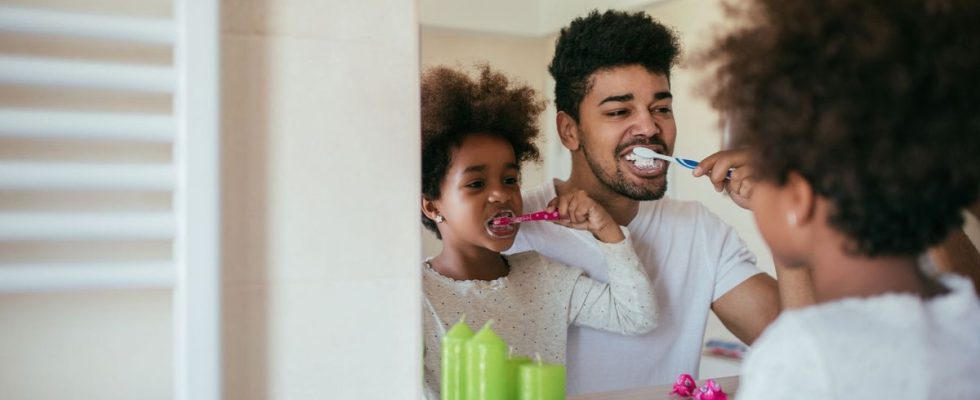Published on
Updated
Reading 2 min.
Fluoride-free toothpastes are becoming more and more common and homemade recipes are exploding on social networks. Be careful, some recipes carry risks for your teeth and the absence of fluoride increases the risk of cavities.
Natural toothpastes are not safe for your teeth
Recipes for natural toothpastes are exploding on social networks, some recommending baking soda, charcoal, peppermint essential oil, white clay, coconut oil, lemon…
Please note, just because a product claims a natural origin does not mean it is harmless. Indeed, the abrasive nature of certain ingredients (clay and charcoal in particular) can be harmful to enamel. Finally, the acidity of other compounds will also have an impact on enamel.
Finally, the recipe is generally made in bowls potentially shared by several members of the household, the infectious risks should not be neglected.
Fluoride toothpastes should remain preferred
Fluoride has been used to prevent cavities since 1947. It has since been included in the composition of many toothpastes, it is mineral (sodium fluoride, sodium monofluorophosphate, etc.) or organic (Olaflur). From 2020, the French Union for Oral Health (UFSBD) notably recalled the benefits of fluoride ions which act in different ways:
- A antiseptic effect against cariogenic germs, such as Streptococcus mutans. By reducing the number of bacteria present in the mouth, we reduce dental plaque, the cause of cavities;
- A enamel strengthening into which it is incorporated, making it more resistant to acid attacks;
- An ability to stop the progression of carious disease and reverse the process by remineralizing the damaged surfaces.
However, in recent years, a debate on the harmful effects of excess fluoride has emerged, particularly on social networks, leading many brands to offer products free of fluoride.
This is deplored by the UFSBD, for whom the risks of fluoride poisoning are very low. “From a regulatory point of view, fluorine ions are limited in cosmetics to a dose of 0.15% (i.e. 1500 ppm, unit endorsed by usage in the oral and dental field)“, recalls the Union in a press release.
Most of the time, the risks are due to misuse: “ingestion of large quantities of toothpaste, particularly by children who are not old enough to spit it out or in particular psychiatric situations“.
